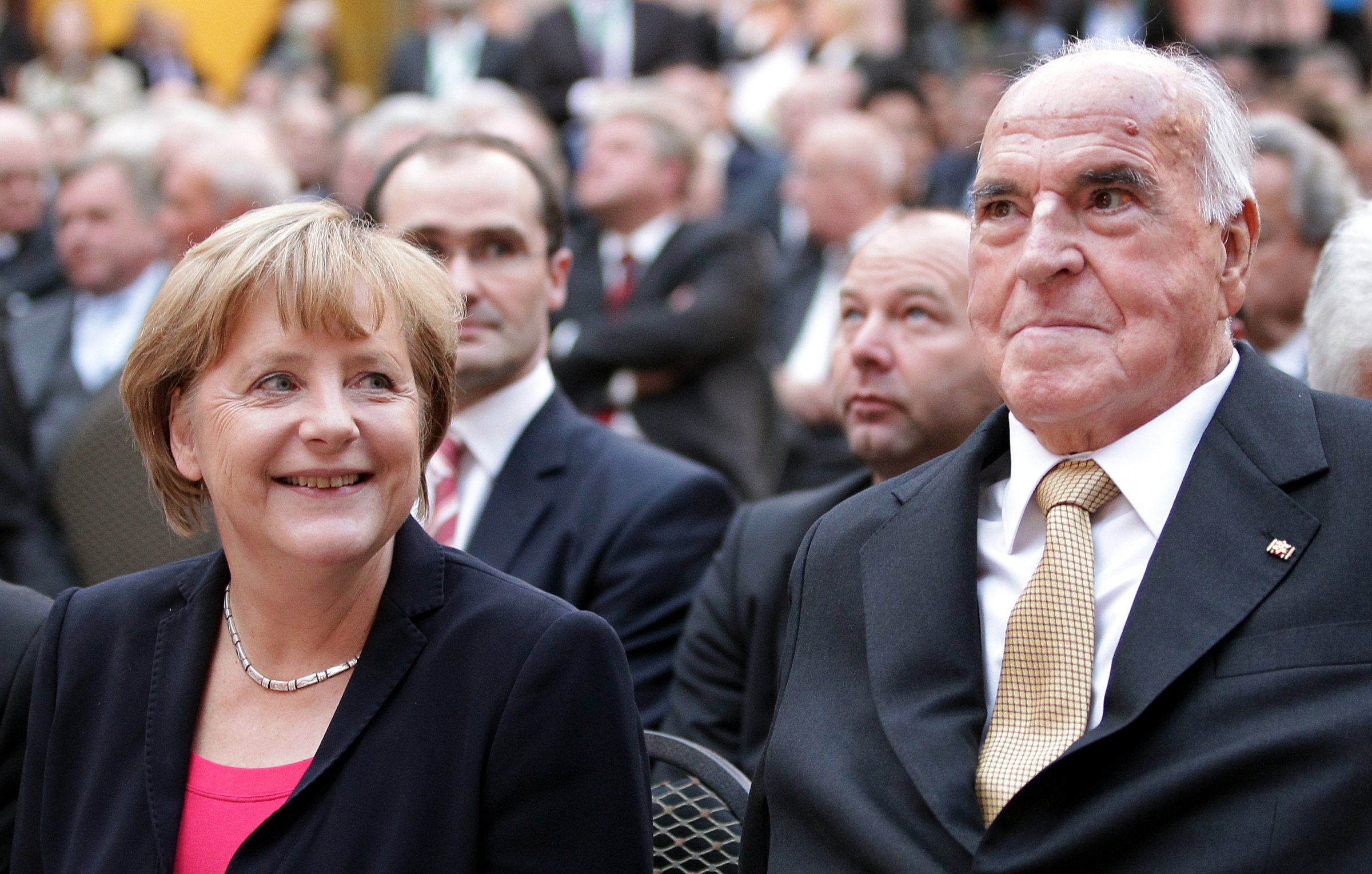
Angela Merkel, western Europe’s longest serving and most influential leader, was elected to a third term in office last year and her popularity among German voters remains startlingly high. But not everybody, it seems, feels the love.
It has emerged that Helmut Kohl, himself a former Chancellor of Germany, the architect of German reunification and in 1991 TIME’s runner-up as Man of the Year (to George H. W. Bush), once said that when it comes to the intricate politics of Europe, his former protégé “has no idea.”
Kohl threw in a few more barbs too. Merkel, who grew up in East Germany and has never entirely absorbed the polish and formality of West German high society, “couldn’t even eat properly with a knife and fork,” Kohl told an interviewer in the early 2000s. “She mooched around so much at state dinners that I often had to call her to order.”
These comments and Kohl’s similarly ripe views of several other colleagues in Germany’s center-right Christian Democratic Union (CDU) may never have been intended for publication. They are included in “Vermächtnis: die Kohl-Protokolle” (Legacy: the Kohl Transcripts), a biography of Kohl based on more than 600 hours of conversations with Heribert Schwan, a journalist originally contracted to ghostwrite Kohl’s memoir.
But after Kohl dismissed Schwan—who blames the influence of Kohl’s second wife, Maike Kohl-Richter, 34 years Kohl’s junior, for his sudden 2009 ouster—Schwan used the recordings to co-author an unauthorized biography with a writer called Tilman Jens, despite Kohl’s victory last month in a court tussle over copyright of the tapes. Media reports in Germany have suggested Kohl—now a frail 84-year-old with limited powers of speech since suffering a head injury in a 2008 fall—will attempt to block the book’s release, but he has not issued an explicit denial of his remarks.
The book will be published in Germany this week and is previewed in the new issue of the German news weekly Der Spiegel. The interviews with Kohl took place between 2001 and 2002, a period of tragedy and turbulence for the politician. Kohl’s first wife Hannelore killed herself as the former Chancellor battled to salvage his reputation in the aftermath of a scandal over CDU party funding. Merkel almost certainly earned Kohl’s enduring ire by helping to force his resignation from the CDU presidency in 2000, urging the party to move on without its “old warhorse” (her words) to rebuild popularity after the scandal. She may not have chosen the most respectful term to describe Kohl, who in 1991 installed her as a minister in the first government of reunited Germany. Then again, he famously patronized Merkel, often referring her as “das Mädchen,” the girl. Nobody, least of all the wily Merkel, will have been blindsided by the revelation that Kohl continues to nurse a grudge against her.
The bigger surprise is how Kohl saw the man he often hailed as a friend, Mikhail Gorbachev, the last President of the Soviet Union, named TIME’s Man of the Decade in 1990 for his role in ending the Cold War. In Kohl’s estimation, if Gorbachev was a hero, it was only of the accidental kind. “Gorbachev looked over the books and realized all was lost and the regime couldn’t survive,” Kohl told Schwan. “And if he wanted to preserve Communism, he had to reform it, so he came up with the idea of Perestroika… He dissolved Communism, partly against his will, but he did dissolve it. Without violence. Without bloodshed. There wasn’t much more to his legacy than that.”
Kohl will have had an eye on his own legacy as he spilled his innermost thoughts to Schwan. The manner of their publication, unvarnished and without the pruning Kohl might have preferred, will certainly shape historians’ views of the architect of German reunification. He may have united his country, but he remains, even in retirement, a divisive figure.
More Must-Reads from TIME
- Donald Trump Is TIME's 2024 Person of the Year
- TIME’s Top 10 Photos of 2024
- Why Gen Z Is Drinking Less
- The Best Movies About Cooking
- Why Is Anxiety Worse at Night?
- A Head-to-Toe Guide to Treating Dry Skin
- Why Street Cats Are Taking Over Urban Neighborhoods
- Column: Jimmy Carter’s Global Legacy Was Moral Clarity
Contact us at letters@time.com